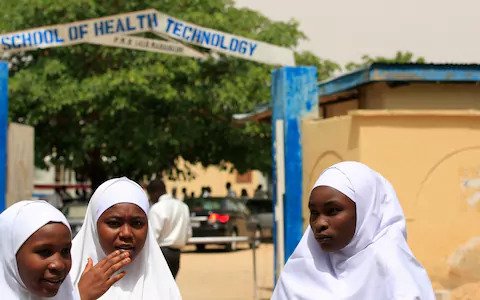Time To End Violence Against Women, Girls In Northern Nigeria

November 25 every year, marks the International Day for the Elimination of Violence Against Women and the first day of 16 days of activism against gender-based violence across the globe.
The declaration on the elimination of violence against women issued by the United Nation General Assembly in 1993, defines violence against women as “any act of gender-based violence that results in or is likely to result in, physical, sexual or psychological harm or suffering to women.
A study commissioned by Nigeria’s Ministry of Women Affairs and Social Development and the United Nations Population Fund (UNPF) found out that 28 per cent of Nigerian women aged 25-29 have experienced some form of physical violence since age 15.
Women and girls in Northern Nigeria face various forms of domestic violence and abuse and conflict-related violence in areas ravaged by communal conflicts, banditry and insurgency.
The prevalence of Sexual and Gender-Based Violence (SGBV) in the region led to a wave of online and field campaigns by #ArewaMetoo movement, an advocacy campaign run by young women to break the silence around SGBV and call for the elimination of violence against women.
Arewa, a local term for the northern part of Nigeria, suddenly found itself engulfed in a conversation considered by a segment of the population as taboo, in spite of the impact of abuses and violence on women and girls in the region.
The movement subsequently led to a #NorthNormal campaign calling for the domestication of the Violence Against Persons Prohibition Act (VAPP).
Hassana Maina, a gender advocate and member of the #ArewaMetoo in an interview with HumAngle said the 16 days of activism was important for raising awareness and ensuring every girl child is safe.
Maina who has also coordinated North Normal advocacy in Borno State, Northeast Nigeria she says sexual and gender-based violence is one issue people don’t talk about or do so, in whispers
She added that these are things only spoken off laced with the language of shame, often directed towards the victim.
Women and girls bear the brunt of violence and conflicts, Maina said.
In the Northeast, the Boko Haram conflict has led to the abduction of thousands of women and girls since 2009. Many abductees have been abused and raped.
The UN High Commissioner for Refugees in its annual report 2019 stated that 1,666 incidents of Sexual and Gender-Based Violence were reported in Borno, Adamawa and Yobe states between January to December 2019
According to the 2019 Humanitarian Response Plan, about three million people need GBV prevention and response services in Borno, Adamawa and Yobe states.
In the Northwest, HumAngle has reported the targeting of women and girls by armed groups terrorizing rural communities in the region.
Khadija Awwal, a founding member of a Mayafi Foundation, an organisation dedicated to combating SGBV told HumAngle, it is important, now more than ever, to end all forms of violence against women because every person should be treated with dignity and respect.
“To achieve that, we must work towards changing our mindsets to accept that women are human beings and no human is more entitled to proper and equal treatment than another,” Awwal said.
Violence against women and girls causes psychological, sexual and reproductive health harms to women at all stages of their life.
They also battled through restricted access to higher education, poverty, and limited opportunities for women in the labour market.
Support Our Journalism
There are millions of ordinary people affected by conflict in Africa whose stories are missing in the mainstream media. HumAngle is determined to tell those challenging and under-reported stories, hoping that the people impacted by these conflicts will find the safety and security they deserve.
To ensure that we continue to provide public service coverage, we have a small favour to ask you. We want you to be part of our journalistic endeavour by contributing a token to us.
Your donation will further promote a robust, free, and independent media.
Donate HereStay Closer To The Stories That Matter




